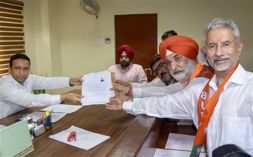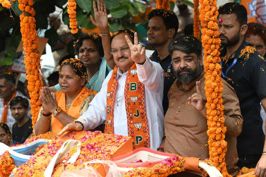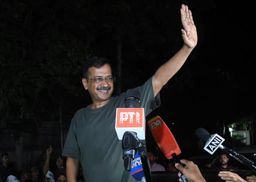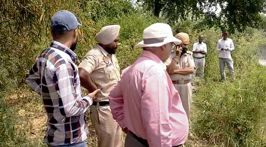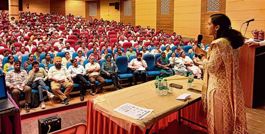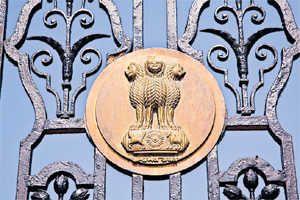
Devender Singh
The Petitions Committee of the Delhi Legislative Assembly is said to have taken an unprecedented decision to “summon the Lt Governor of Delhi to quiz him” over the alleged scams during the chief ministership of Mrs Sheila Dixit. This raises a fundamental question about the power of the Petitions Committee to compel the LG to tender evidence before it.
Ordinarily, a committee of legislature has the power to send for papers, persons and records in connection with a matter under its consideration. The power to compel evidence is subject to the restriction that the government may decline to produce a document on the ground that its disclosure would be prejudicial to the safety or interest of the state. As a well established and unbroken parliamentary practice, ministers are not summoned to depose before committees of legislature.
A ministry or the department is represented by the senior most civil servant, usually the secretary, who tenders evidence and is orally examined by the committee. A minister, even if desirous, cannot, suo motu, depose or attend the sitting of a parliamentary committee, nor can the committee force him to do so. In case there is willingness on both sides, the evidence of a minister can be recorded by the committee.
For instance, when the Urban Land (Ceiling & Regulation) Repeal Bill, 1998, was under examination by the Departmentally Related Standing Committee on Urban Affairs and Employment, the request of the minister to address them was declined by the committee. During UPA-II, when the PAC was examining the 2G scam, there were media reports to the effect that the Prime Minister would be willing to come before the PAC to explain his position but no such communication was received in the PAC nor did the PAC deliberate on the need for examining the Prime Minister.
There is, however, an exception as the ministers for Finance and Health and Family Welfare appeared before the Joint Committee of Parliament in 1992 constituted to enquire into irregularities in securities and banking transactions considering the uncommon nature of the scam, its wide ramifications and the general agreement among the leaders of political parties in Parliament.
The governor of a state, or the Lt Governor of a UT with legislature for that matter, stands on a higher constitutional pedestal vis-a-vis a minister. The functions of the governor are similar to the functions of the President. The conduct of high constitutional functionaries like the President and the judges of the Supreme Court and high courts cannot be discussed in Parliament. They can only be impeached after following the due procedure.
The governors, including the LG, though appointed for five years, hold office during the pleasure of the President. There is no provision for impeachment of governors, but instances are galore when the decisions or indecisions of certain governors were subject of discussion in legislatures on admission of substantive motions by the presiding officers. But a legislative Assembly has no power to force the presence of a governor at the bar of the House.
On the contrary, the Constitution empowers the governor to address the legislative Assembly or, in the case of a state having a legislative council, either House of the legislature or both the Houses assembled together. The governor may, for that purpose, require the attendance of members. In case the governor deviates from the constitutional path, his decision can be assailed in the court of law. Or a petition from the chief minister, or a resolution passed by the state legislature, can be presented to the President.
While the higher judiciary may declare a decision of the governor as ultra vires the Constitution, the President alone has the power to sack a governor. In the case of a UT with legislature, the LG, even though not a full-fledged governor, enjoys far greater legislative and administrative powers, as the powers of the UT Legislatures are constrained by the statute. It may create, and often does create, avoidable confusion and confrontation, pitting the legislature and the council of ministers against the LG. Be that as it may, the Constitution and parliamentary procedure confer no power on a UT legislature to summon the LG before its committee or at the bar of the legislature.
Another point of constitutional import and propriety is that a parliamentary committee can make inquiry into matters of alleged ministerial irregularities — legal or procedural. It cannot delve into the question of criminal culpability, that is mens rea, which the police or specifically designated statutory authority alone can investigate and the judiciary adjudicate. A committee of legislature is not a court of law but a recommendatory body and not a substitute for court of law. The right recourse in such a situation is to knock at the door of the judiciary instead of creating a needless brouhaha. Prudence and democratic culture demand that constitutional offices should not be dragged into needless controversies.
The writer is Additional Secretary in the Lok Sabha and a scholar of constitutional and parliamentary studies. The views expressed are personal.





















